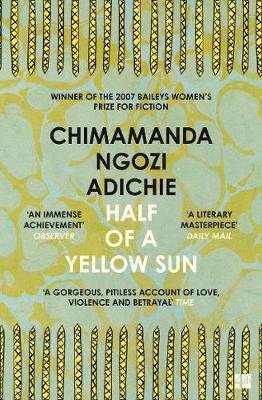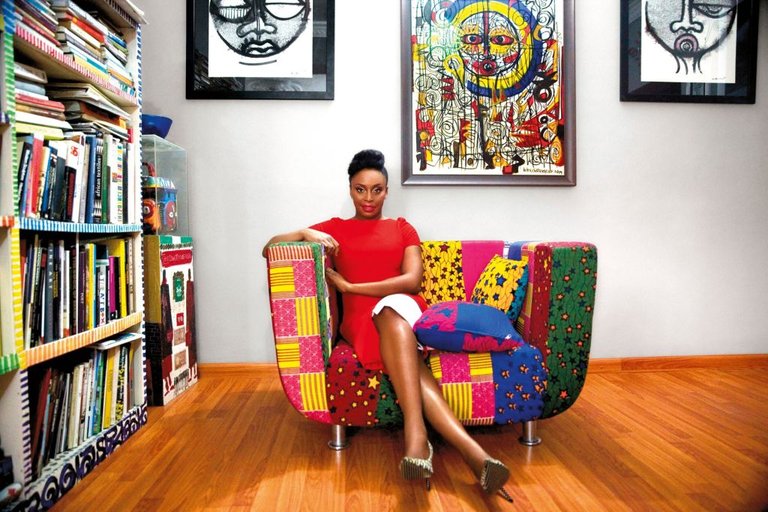
Half of A Yellow Sun is a beautiful portrayal of the effect of the Nigeria-Biafra war on Nigerian society, with all its ugliness included. It follows 3 characters who come from very different backgrounds, but who are all brought together in the story.
Richard is a British writer who arrives in Lagos to study Nigerian art for a book he is writing. He falls in love with a wealthy Nigerian woman and becomes integrated into the society, but as much as he tries he remains an outsider.
Ugwa is a 13-year-old houseboy who comes from an illiterate village. He enters the house of a Nigerian professor, his Master, who teaches him to read, sends him to school and opens his world. During which he works as help, and becomes part of the family.
Olanna is from a wealthy educated background but sees the world differently to her pairs. We meet her while she is preparing to move to Nsukka, a university town, to be with her “revolutionary lover”. To enter a world separate from the wealth of her upbringing, and her existence as ‘bait’ for the family business.
“She was used to this, being grabbed by men who walked around in a cloud of cologne-drenched entitlement, with the presumption that, because they were powerful and found her beautiful, they belonged together.”
They are less obvious narrators but powerful in their existence.
War and poverty invade the story as every human being becomes deeply affected by what is going on in their country. Whether rich, middle class or poor — no one is safe from the degradation of society that comes with war. An unimaginable existence that means no one is the same again.

Chimamanda Ngozi Adichie grew up in Nsukka, a University town, southeast of Nigeria. At 19 she moved to the US to study. In 2008 she received a Masters of Art in African Studies from Yale University. She is seen as a woman recording her country’s history.
“If fiction is indeed the soul of history, then I was equally committed to the fiction and the history, equally keen to be true to the spirit of time as well as to my artistic vision of it.”
Adichie is a powerful woman who has taken on a great task of telling a different story of Nigeria, of Africa. She challenges the view of who should be writing the stories of Africa — and talks extensively about the danger of a single story in her TED talk “The Danger of a Single Story”.
Here she highlights the importance to talk about all the stories of a place and person. If not, “it robs people of their dignity”.
She is a feminist and says she has been so before she even knew what it meant. She holds writing workshops in Nigeria and is setting up a not-for-profit to open more libraries and awaken a desire for literature in her country.
The world needs more writers of this calibre — someone who challenges our western view of her country, of her continent. Through her, my eyes have been opened. Through the power of a story, and the beauty of literature.
I now feel more understanding and have a desire to learn more than the single story to this world.